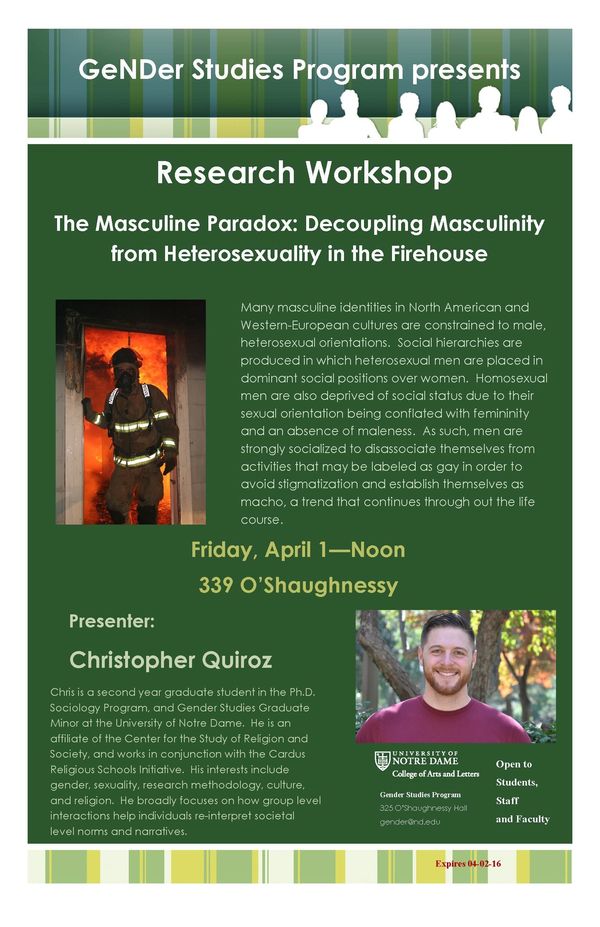
Many masculine identities in North American and Western-European cultures are constrained to male, heterosexual orientations. Social hierarchies are produced in which heterosexual men are placed in dominant social positions over women. Homosexual men are also deprived of social status due to their sexual orientation being conflated with femininity and an absence of maleness. As such, men are strongly socialized to disassociate themselves from activities that may be labeled as gay in order to avoid stigmatization and establish themselves as macho, a trend that continues through out the life course. In the case of masculine workplaces, such as the fire service, one would expect to find that the men in these organizations engage in performances of heteronormative masculinity in order to to avoid the stigma associated with a lacking masculine capital, the social status men accrue by demonstrating masculine competence. Despite the expected association between masculine groups and behavior, the conventional boundaries between hetero and homosexuality erode within many hyper-masculine organizations. Using the case study of a Southern California rural fire department, this study explores how and why men breach heteronormative barriers between men through excessive physical or emotional contact. I find that in masculine groups, breaches in orthodox masculine behavior are not only perceived as acceptable, but as necessary to form the cohesion and solidarity that ultimately leads to an organization's success.
Research Workshop - Open to Students, Staff and Faculty
Friday, April 1 at Noon
339 O'Shaughnessy
Presenter: Christopher Quiroz, PhD Sociology and Gender Studies Graduate Minor student
Chris is a second year graduate student in the Ph.D. Sociology Program, and Gender Studies Graduate Minor at the University of Notre Dame. He is an affiliate of the Center for the Study of Religion and Society, and works in conjunction with the Cardus Religious Schools Initiative. His interests include gender, sexuality, research methodology, culture, and religion. He broadly focuses on how group level interactions help individuals re-interpret societal level norms and narratives. In his Master’s thesis, he explores how rural firefighters redefine masculine practices within the firehouse. His other works in progress address how different school sectors impact the well-being of sexual minorities, the effect of religion and gender on perceptions of government sanction torture, and the normalizing of gender roles through historical cinematic interpretations of classical antiquity.
Additional Research Workshop information